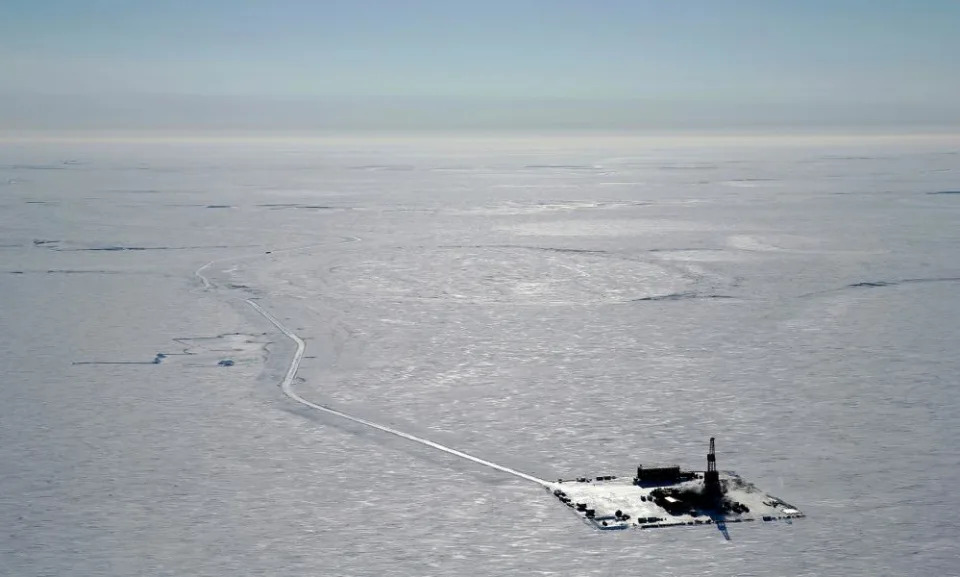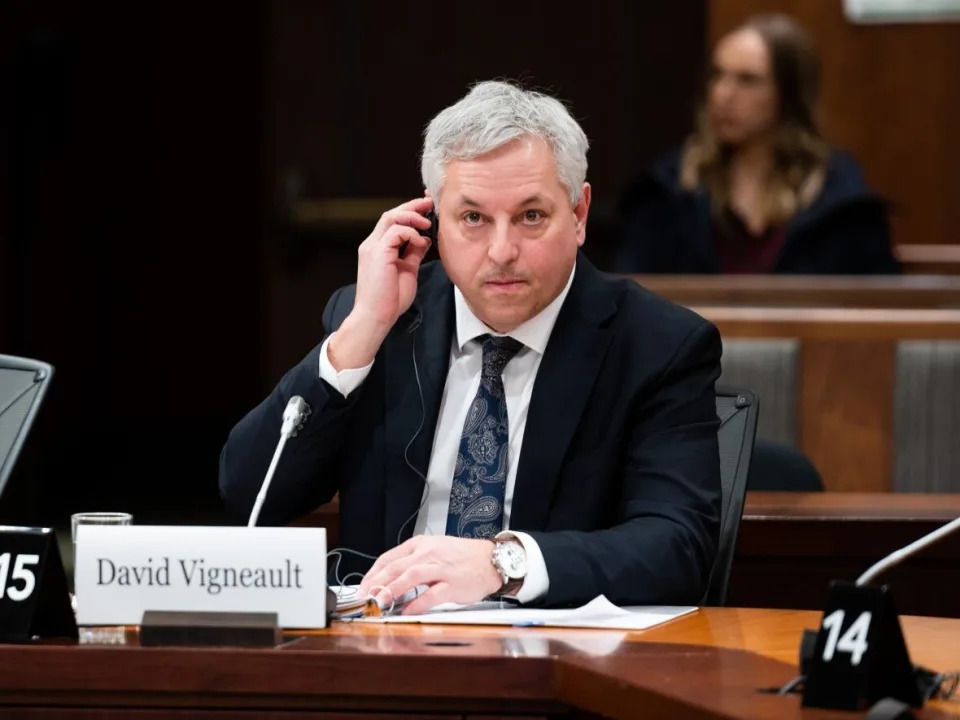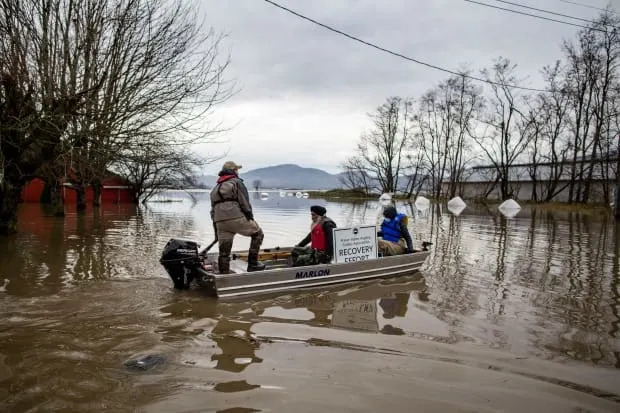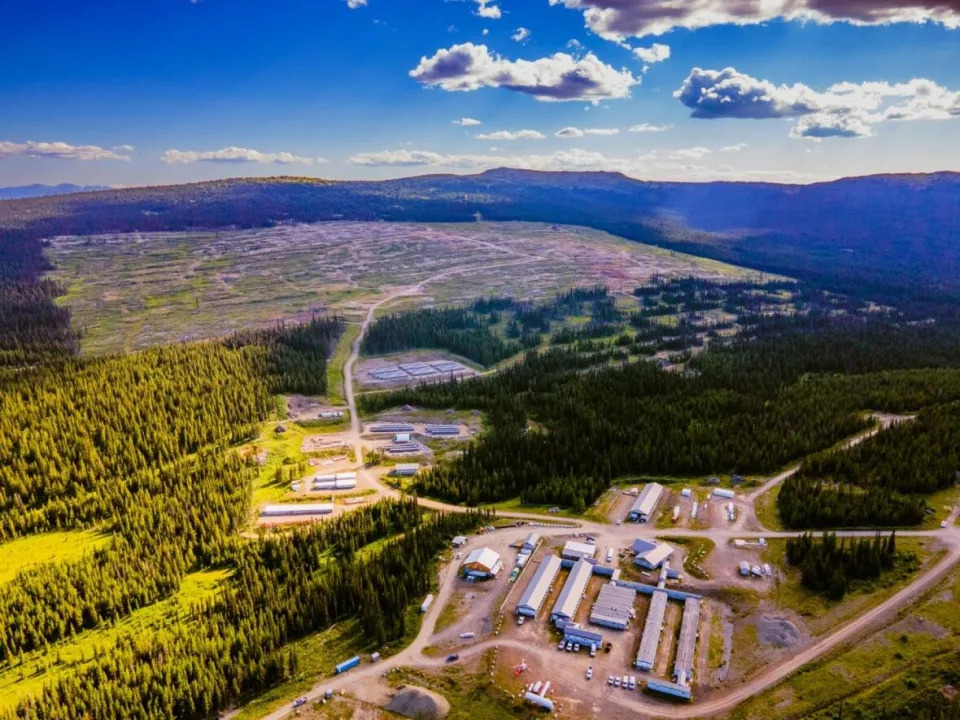
A pipe yard servicing government-owned oil pipeline operator
Trans Mountain is seen in Kamloops
Fri, March 10, 2023
By Nia Williams
(Reuters) -The cost of the Canadian government-owned Trans Mountain oil pipeline expansion has jumped 44% from last year's estimate to C$30.9 billion ($22.35 billion), the federal corporation building the project said on Friday.
Trans Mountain Corp (TMC) said it is in the process of securing external financing to fund the remaining cost of the project, which is now expected to start shipping oil in the first quarter of 2024.
The 590,000 barrel-per-day pipeline expansion will nearly triple the flow of barrels from Alberta's oil sands to Canada's Pacific coast, opening access to Asian markets. It has been beset by regulatory delays, environmental opposition and hefty budget overruns.
Prime Minister Justin Trudeau's government bought the pipeline from Kinder Morgan Inc in 2018 to ensure the expansion got built, drawing sharp criticism from environmental groups.
Last February TMC increased the cost estimate to C$21.4 billion, up from C$12.6 billion in 2020 and C$7.4 billion in 2017. Following last year's jump, the Canadian government said it would halt any further public funding for the project.
Finance Minister Chrystia Freeland reiterated government plans to sell the pipeline once it is complete.
"As we committed to Canadians last year, no additional public money will be invested in this project as construction is completed," Freeland said in a statement.
"The federal government does not intend to be the long-term owner of the project, and we will launch a divestment process in due course."
BMO Capital Markets and TD Securities have been engaged by the government to provide advice on certain financial aspects of the project.
In a letter to the government on Friday, the banks said once the expansion is complete TMC is expected to generate earnings before interest, taxes, depreciation and amortization of more than C$2.4 billion a year and would be commercially viable.
BMO declined to comment and TD did not immediately respond to a request for comment.
Eleven oil shippers, including Canadian Natural Resources Ltd and MEG Energy have committed to long-term contracts that make up 80% of Trans Mountain's capacity.
TMC blamed the cost increase on a number of factors including high global inflation and supply chain issues, floods in British Columbia, unexpected major archaeological discoveries and challenging terrain.
The corporation also said the current cost estimate does not include reserves for "extraordinary risks" and could change again.
"As with all projects of this size, risks to the final costs and schedule will remain as work is completed through 2023," TMC said in a statement.
Keith Stewart, a senior energy strategist with Greenpeace Canada, said buying and building the pipeline would go down as one of the worst infrastructure decisions ever made by a Canadian government.
"It was always a disaster from a climate change perspective, but this is now an economic crime that has stolen C$30 billion of public funds from real climate solutions," Stewart said.
(Reporting by Nia Williams in British Columbia, Steve Scherer in Ottawa, Maiya Keidan in Toronto and Rahul Paswan in Bengaluru; Editing by Leslie Adler, Grant McCool and David Gregorio)
Fri, March 10, 2023
By Nia Williams
(Reuters) -The cost of the Canadian government-owned Trans Mountain oil pipeline expansion has jumped 44% from last year's estimate to C$30.9 billion ($22.35 billion), the federal corporation building the project said on Friday.
Trans Mountain Corp (TMC) said it is in the process of securing external financing to fund the remaining cost of the project, which is now expected to start shipping oil in the first quarter of 2024.
The 590,000 barrel-per-day pipeline expansion will nearly triple the flow of barrels from Alberta's oil sands to Canada's Pacific coast, opening access to Asian markets. It has been beset by regulatory delays, environmental opposition and hefty budget overruns.
Prime Minister Justin Trudeau's government bought the pipeline from Kinder Morgan Inc in 2018 to ensure the expansion got built, drawing sharp criticism from environmental groups.
Last February TMC increased the cost estimate to C$21.4 billion, up from C$12.6 billion in 2020 and C$7.4 billion in 2017. Following last year's jump, the Canadian government said it would halt any further public funding for the project.
Finance Minister Chrystia Freeland reiterated government plans to sell the pipeline once it is complete.
"As we committed to Canadians last year, no additional public money will be invested in this project as construction is completed," Freeland said in a statement.
"The federal government does not intend to be the long-term owner of the project, and we will launch a divestment process in due course."
BMO Capital Markets and TD Securities have been engaged by the government to provide advice on certain financial aspects of the project.
In a letter to the government on Friday, the banks said once the expansion is complete TMC is expected to generate earnings before interest, taxes, depreciation and amortization of more than C$2.4 billion a year and would be commercially viable.
BMO declined to comment and TD did not immediately respond to a request for comment.
Eleven oil shippers, including Canadian Natural Resources Ltd and MEG Energy have committed to long-term contracts that make up 80% of Trans Mountain's capacity.
TMC blamed the cost increase on a number of factors including high global inflation and supply chain issues, floods in British Columbia, unexpected major archaeological discoveries and challenging terrain.
The corporation also said the current cost estimate does not include reserves for "extraordinary risks" and could change again.
"As with all projects of this size, risks to the final costs and schedule will remain as work is completed through 2023," TMC said in a statement.
Keith Stewart, a senior energy strategist with Greenpeace Canada, said buying and building the pipeline would go down as one of the worst infrastructure decisions ever made by a Canadian government.
"It was always a disaster from a climate change perspective, but this is now an economic crime that has stolen C$30 billion of public funds from real climate solutions," Stewart said.
(Reporting by Nia Williams in British Columbia, Steve Scherer in Ottawa, Maiya Keidan in Toronto and Rahul Paswan in Bengaluru; Editing by Leslie Adler, Grant McCool and David Gregorio)

















